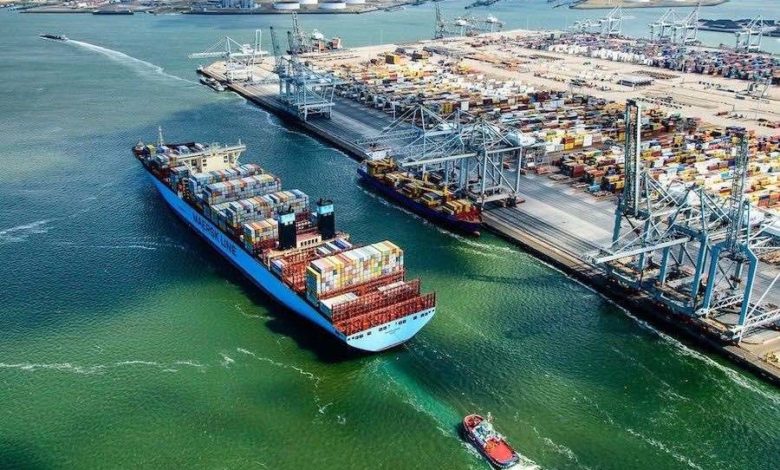Pressure grows on Brussels to repeal liner block exemption regulation

A host of transport-related associations have joined forces to urge the European Commission to repeal the EU consortia block exemption regulation (BER), which is currently under review in Brussels.
Nine associations – comprising shippers, forwarders, ports, barge and tug operators – yesterday determined that the BER, which comes up for renewal shortly, is now obsolete.
In a release the associations described the BER as a “generous exemption from normal competition rules”.
“[M]arket developments which occurred over the last five years justify an in-depth review of the regulatory framework as this has not been done since 2009,” the associations stated, adding that the liner market concentration – either via mergers or new alliances – had created a negative environment for their businesses and their customers.
The grouping cited a recent report from the International Transport Forum (ITF) which concluded that “the impacts of alliances on the containerised transport system taken as a whole seem to be predominantly negative”.
The associations jointly concluded that the European Commission should repeal the BER unless a revised regulatory framework clarifying the current legislation is adopted.
The BER could be extended for a further five years beyond its current 2020 expiration date with Brussels currently seeking feedback from stakeholders on the issue, something that has generate a vast swathe of response from across the maritime landscape.
In December four trade associations representing the international liner shipping industry – the World Shipping Council (WSC), the European Community Shipowners’ Associations (ECSA), the International Chamber of Shipping (ICS), and the Asian Shipowners’ Association (ASA) – submitted their comments to the European Commission supporting an extension of the regulation.
The industry comments claim vessel sharing arrangements are a fundamental part of the structure of the global liner shipping transportation network and that the consortia BER has since 1995 provided transparent and practical legal guidance to vessel sharing arrangements for international liner shipping services operating from and to EU ports.
The submission from the liner-linked bodies went on to maintain that despite recent mergers in the liner industry, the industry remains unconcentrated and highly competitive, with freight rates at half of their levels 20 years ago.
In a 127-page report on container alliances issued in November, the International Transport Forum (ITF), administrated by the Organisation for Economic Co-operation and Development (OECD), called on the EU to not renew the BER.
“A repeal of block exemptions is unlikely to result in the termination of current and future alliances, as these could still be authorised under competition law on a case by case basis,” ITF explained, adding: “However, it would ensure greater scrutiny of individual alliances and thus more effectively deter any anticompetitive conduct in the sector.”
Among the many submissions made to Brussels on the matter, one from an anonymous European shipowners association stands out. The 18-page document, seen by Splash, argues that the BER will inevitably lead to European companies fading as tonnage providers.
“Consortia members appear to interpret the Consortia BER as allowing coordinated or joint purchases/charters from tonnage providers,” the submission alleges, adding that the current regulation does not sufficiently clearly deal with this kind of coordination, thereby causing harmful effects to competition, quality and sustainability of European tonnage providers.
The BER provisions, the submission claims, have been used against tonnage providers.
“Liner companies engaging in consortia have extensively coordinated their chartering activities (even though never officially declared to outsiders) during the past decade without a single known case during which this practice was challenged by authorities,” the anonymously penned document states, adding: “The negotiation power of consortium members is significantly higher than that of independent liner companies, thereby keeping charter rates artificially low.” The authors observe how the correlation between the percentage of ships unemployed and the development of charter rates have significantly decreased over the last 10 years.
The submission concludes: “In the long run, if selling below cost, tonnage providers in the EU are going to be substituted by tonnage providers from outside the EU. This will lead to dependencies from non-EU countries and can significantly raise the costs of end customers and consumers.”
I have read a lot of views on the EU competition law exemption for liner shipping. Of all these, I think this one is the most lethal: it makes clear that this regulatory tool for shipping is actually undermining the EU shipping industry. And written by a shipping association… pic.twitter.com/pSX8p0FwOI
— Olaf Merk (@o_merk) February 13, 2019
